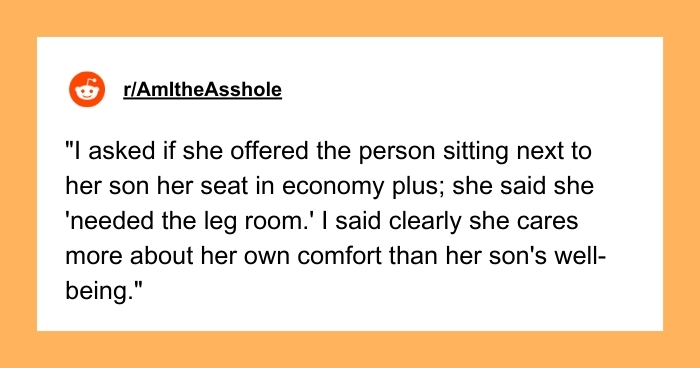Plane passenger makes a ‘seat swapper’ cry, ‘I’m cruel for leaving her son with anxiety.’ AITA?
As described in this post by Redditor The_Only_Word, the Original Poster (OP for short) shared the story of an incident on a flight where they were asked to trade in their premium “economy plus” seat to sit in a standard economy one (32B) to allow a mother to sit next to her 9-year-old son. OP refused, asked for compensation for the difference he paid for his better seat, and entitled mother called him “cruel” for leaving her ill-accommodated child alone and anxious. In response, OP asked why the mother didn’t have the person sitting next to her son offer them up their upgraded seat to take the legroom as well, arguing that if the mother wanted the legroom, it seemed the concern for the child had gone out the window. She erupted into a breathe taking acting scene and OP started feeling guilty about how blunt she was about her parenting.
Read for more info Reddit
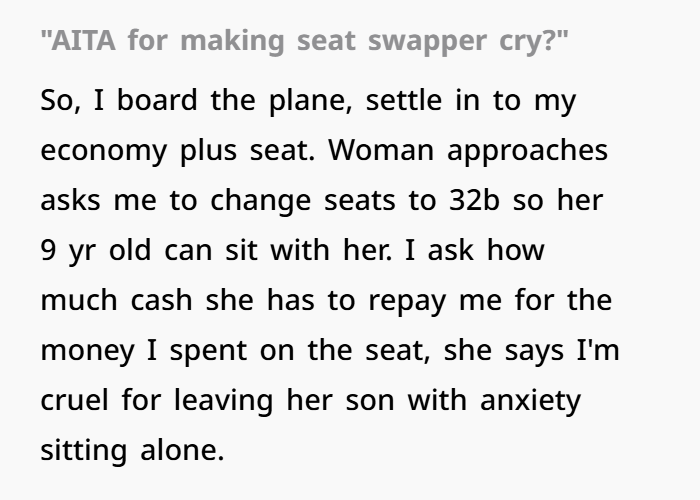
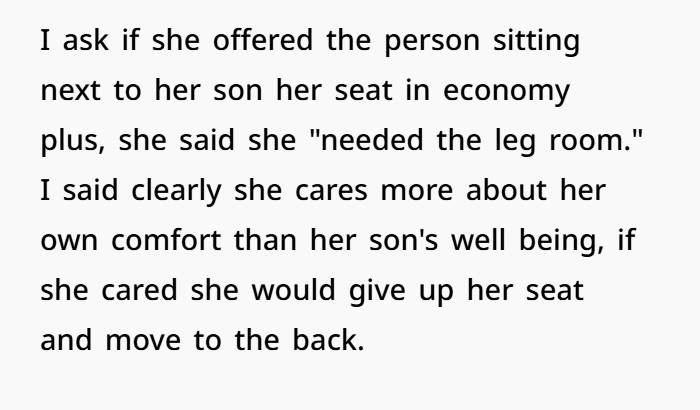
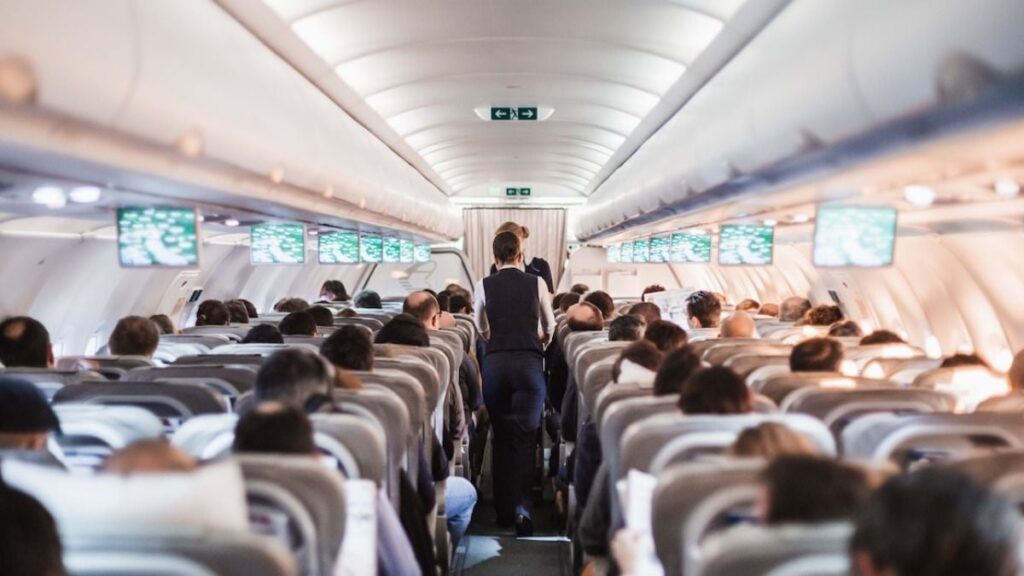
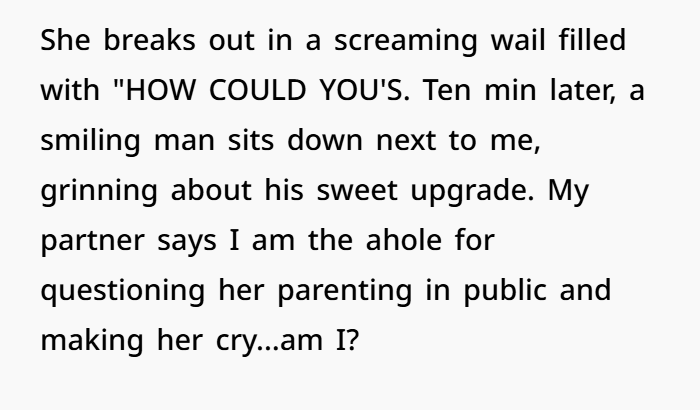
The Ethics of Seat Swapping on Planes:
Seat swapping is a common source of tension on flights, especially when involving children. While some might argue that accommodating a parent’s request to sit with their child is a courtesy, it is not an obligation, particularly when the requested seat is in a downgraded section. Passengers who pay extra for specific amenities—such as legroom in “economy plus”—are entitled to enjoy the benefits of their purchase without guilt or obligation to accommodate others.
Alternative Solutions the Mother Overlooked:
- Trading with the Neighbor: A reasonable approach would have been for the mother to ask the person sitting next to her son in row 32 to swap with her. This solution wouldn’t have inconvenienced OP or required a downgrade.
- Planning Ahead: Many airlines allow passengers to select seats together when booking tickets, especially for families traveling with children. While emergencies or last-minute bookings can disrupt these plans, the mother’s expectation that OP should bear the burden of her oversight shifts personal responsibility.
Emotional Manipulation or Genuine Distress?
The mother’s breakdown raises questions about emotional manipulation versus genuine distress. Public outbursts, especially when directed at strangers, can place undue pressure on others to comply, leveraging guilt as a tool. OP’s response, which highlighted the disparity between her stated concern for her son and her unwillingness to give up her own upgraded seat, may have struck a nerve, but it underscored a valid point.
Precedents in Similar Situations:
Social norms around seat swapping on flights vary, but broader consensus leans toward treating requests as favors, not entitlements. Studies on prosocial behavior suggest that while many people will accommodate reasonable requests when feasible, this diminishes when the perceived cost (e.g., a downgrade or loss of paid benefits) outweighs the moral obligation. In this case, the mother’s refusal to sacrifice her comfort weakens her moral high ground.
Was OP Wrong to Comment on Parenting?
Calling out someone’s parenting in a public setting can be seen as provocative, even if the critique is valid. However, OP’s response came after being called “cruel,” making their comment more of a defensive rebuttal than an unprovoked attack.
Here’s what top commenters had to say about this one:
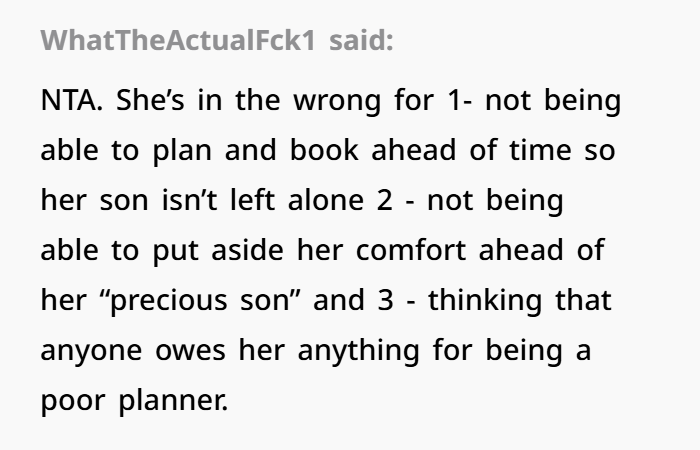
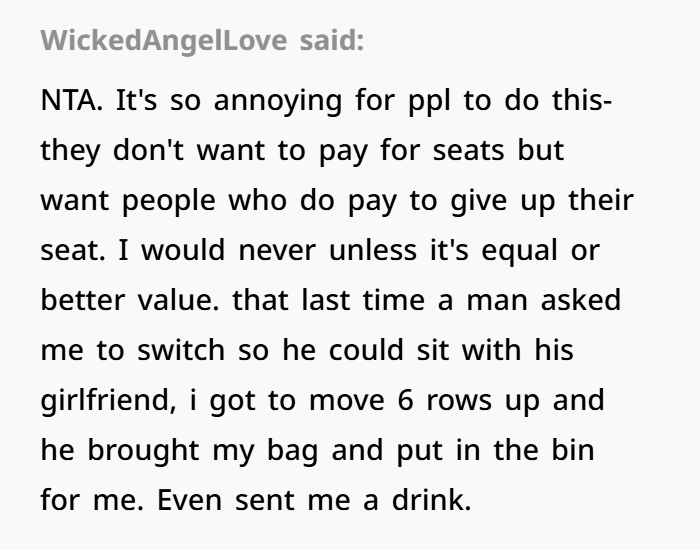



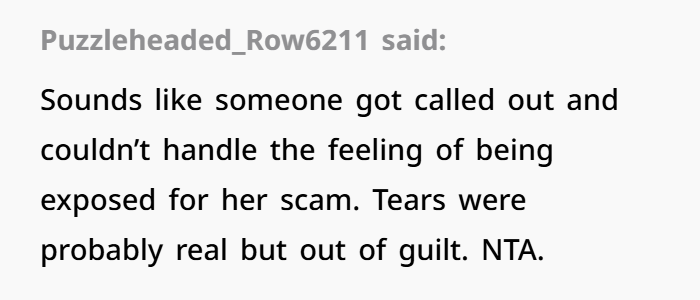
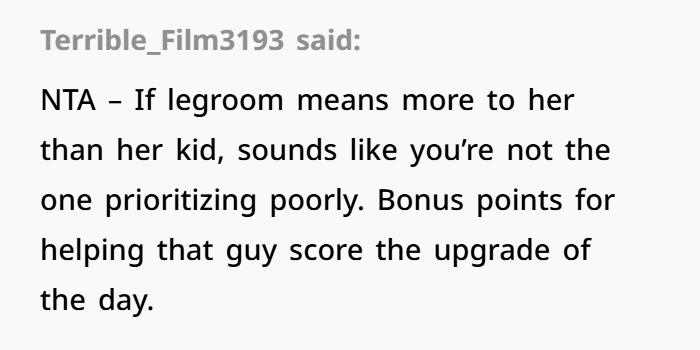
OP is not at all an a-hole for not giving away a paid seat instead of just whining it was the mom who decided it was unimportant for her 10 year old son. That said, OP did on some level deserve to take the high road here as a matter of opinion; as blunt as it was, HER motivation to not switch was that the mother manipulated her, not that OP refused to switch, but that again, is more a matter of perspective.

